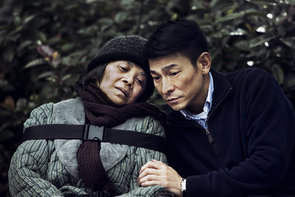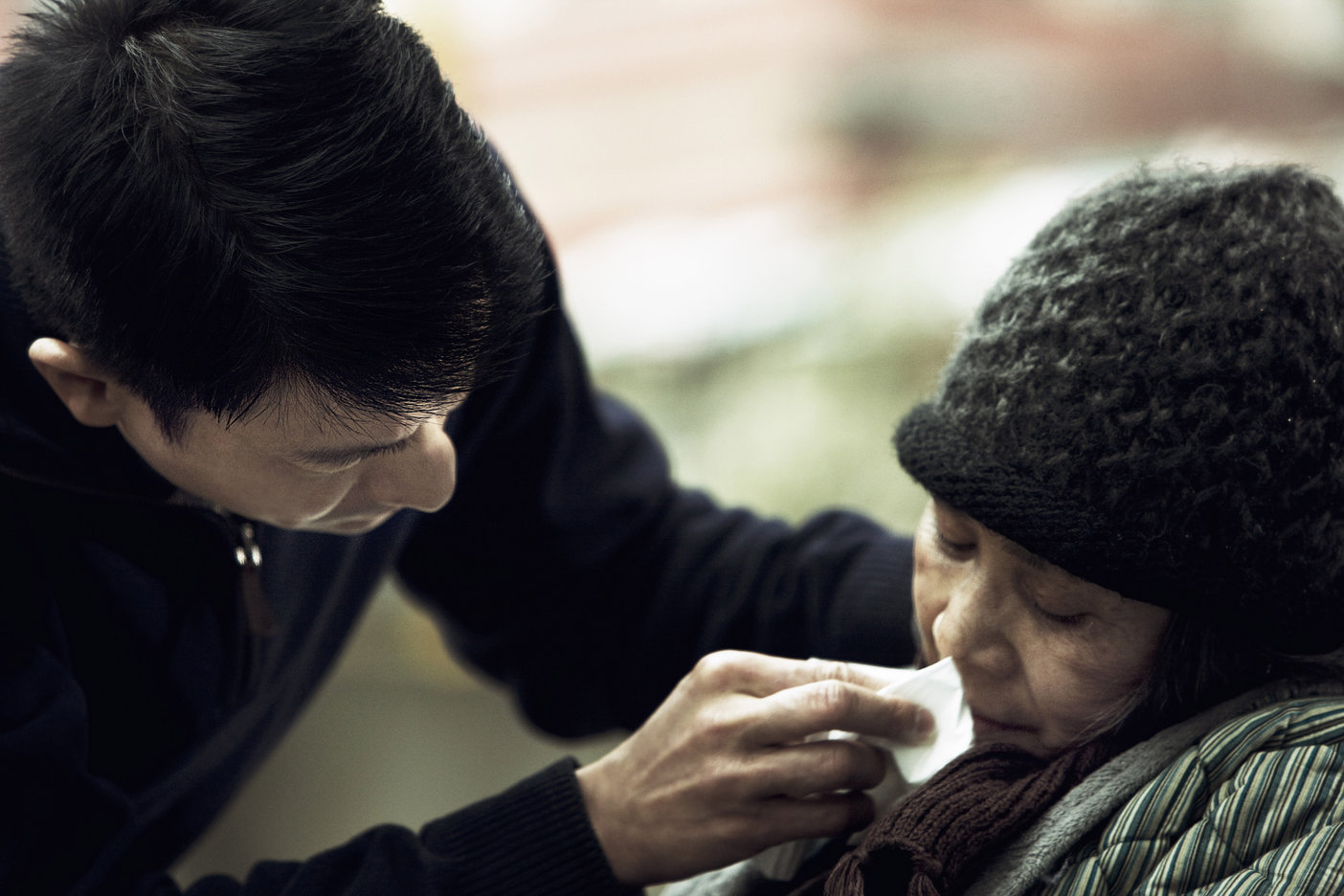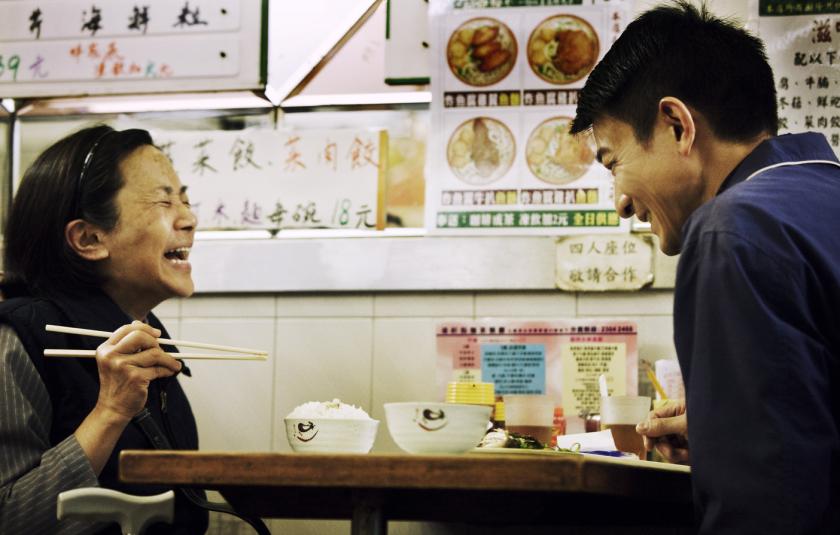Plenty of great films have been made about old age, about the humiliations, emotions, fragilities and joys of the end of life. Wild Strawberries, Harold and Maude, Venus, Driving Miss Daisy, even Pixar’s Up probably has a claim on this category, but Asia, with its regard for the elderly, has always had a special cinematic affinity for the subject. Following in the path of Kurosawa’s Ikiru, A Simple Life explores and exposes with infinite delicacy the relationship between an ageing Hong Kong servant and her employer.
Ah Tao (Deanie Ip) has worked for the same family for 40 years, bringing up two generations of their children and now awaiting the birth of a third. With all the family now in America, she dedicates herself to the needs of the youngest son, successful film producer Roger (Andy Lau), sharing a life of enforced intimacy in his tiny city apartment. But when she suffers a stroke the nature of their relationship must change, and after a lifetime of service it is now Ah Tao’s turn to be looked after.
Director Ann Hui’s gaze here is measured, the pace of her observations echoing the shuffling tread of her ageing cast
What’s most striking here is the unquestioned fitness of this role-reversal, the matter-of-fact acceptance on the part of a business man who suddenly finds himself tending to the needs of his childhood carer. It is this cultural acceptance that saves the film from sentimentality, neither glorifying nor unduly demonising the experience of ageing.
Much of its understated emotional efficiency comes from the energy between veterans Ip and Lau (pictured below) – real-life godmother and godson. Winning the Best Actress Award at last year’s Venice Film Festival for this role, Ip brings a mischievous tartness to even the final scenes, projecting personality and opinion even as increasing forms of expression are denied her. Her relationships with her fellow care home inmates – the randy old Uncle Kin (Paul Chun), a disturbed ex-schoolmaster strangely calmed by snow-globes, a young dialysis patient – put distinctly personal faces on incapacity, framing Ah Tao’s story more broadly.
 Director Ann Hui’s gaze here is measured, the pace of her observations echoing the shuffling tread of her ageing cast. Her interest is in the detail – in watching the silent struggle of Ah Tao in hospital faced with a cup she can’t lift and an orange she can’t peel, trying desperately to maintain social decorum with her employer, and in the gradual dissolution of these niceties over time, as illness transforms employer and servant to godson and godmother and finally just to mother and son.
Director Ann Hui’s gaze here is measured, the pace of her observations echoing the shuffling tread of her ageing cast. Her interest is in the detail – in watching the silent struggle of Ah Tao in hospital faced with a cup she can’t lift and an orange she can’t peel, trying desperately to maintain social decorum with her employer, and in the gradual dissolution of these niceties over time, as illness transforms employer and servant to godson and godmother and finally just to mother and son.
 Lau, better known to Western audiences for his action films, here plays things impassively straight, never risking the grand dramatic gestures that could so quickly undermine this fragile film, but bringing sly moments of humour (a running joke sees him mistaken by turns for an air-conditioning repair man and a taxi driver) to leaven the tone. Set pieces see Roger and Ah Tao exploring the rowdy Hong Kong markets, a Chinese New Year celebration, and walking in the concrete parks of the city, heightening the sense of claustrophobia, of uncomfortable proximity, in this crowded city. Here old people cannot be disposed of out of sight; they live amongst the young, reminders of tradition, hierarchy and human transience.
Lau, better known to Western audiences for his action films, here plays things impassively straight, never risking the grand dramatic gestures that could so quickly undermine this fragile film, but bringing sly moments of humour (a running joke sees him mistaken by turns for an air-conditioning repair man and a taxi driver) to leaven the tone. Set pieces see Roger and Ah Tao exploring the rowdy Hong Kong markets, a Chinese New Year celebration, and walking in the concrete parks of the city, heightening the sense of claustrophobia, of uncomfortable proximity, in this crowded city. Here old people cannot be disposed of out of sight; they live amongst the young, reminders of tradition, hierarchy and human transience.
Hui makes no attempt to complicate her account of A Simple Life, hinting at sub-plots but never pulling on these threads, never pausing the tale to moralise. The result is a gentle meditation on intimacy, on love and duty. It gestures toward issues without expounding and generates emotion without itself expressing much. Not one for the restless viewer.
Watch the trailer to A Simple Life















Add comment